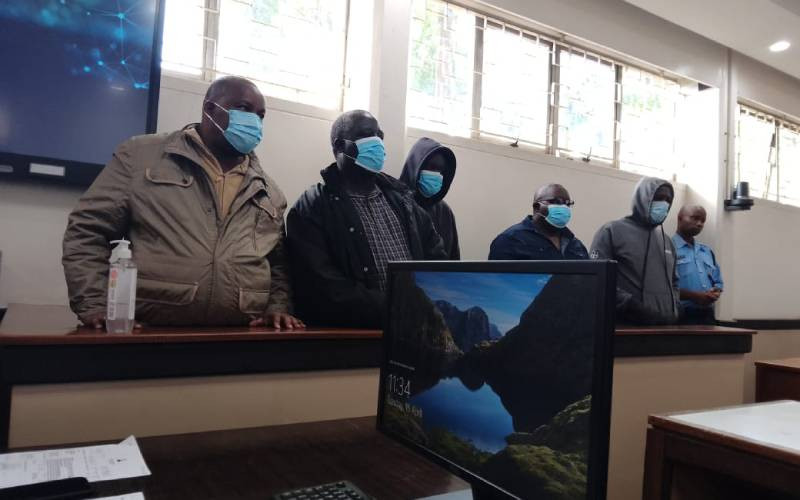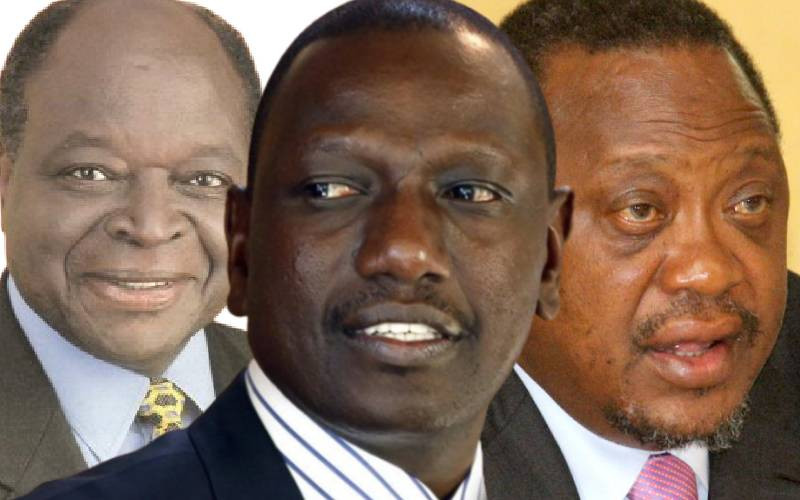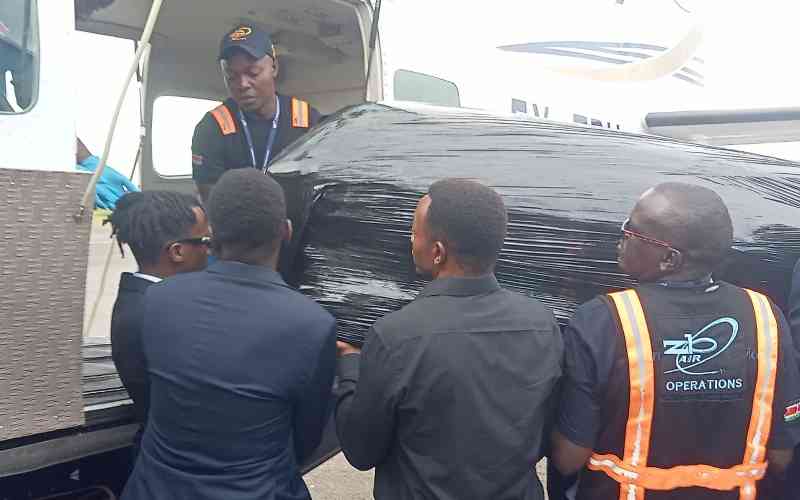The dust settles with ease on everything in Kenya. The only important variable in our national life is passage of time. With this goes our brevity of memory. When time has passed, we simply don’t want to remember anything. This makes us and breaks us.
You see, we are the land of the settling dust, unrolled stones and sterling short memory. We also love sensational drama. We are in our element when something new, something bizarre is breaking news.
Then, led by the media, everybody focuses on the unfolding drama. Our spiritual superiors, the political class, the trade unions, the Law Society, civil society, even foreigners whom we call the international community – all focus on the mirage of the unfolding drama, only to be replaced with some new drama.
That is why the melodrama of self-styled prophet called “Dr” Victor Kanyari and his “miracles” is steadily becoming part of our bad history. A society whose values an insect has eaten has no time for memory.
Like conscience, memory disturbs. It pains. That is why both memory and conscience must be cast in the dustbin of history, as quickly as they begin disturbing us. Accordingly, we have forgotten the primary school laptop tenders saga. We no longer care about the details of the Standard Gauge Railway (SGR) line tenders, or the truth behind the hustler’s multimillion-shilling jet of last year. We have forgotten the scam of land procurement for Kenyan embassies in Abuja, Nigeria and Tokyo, Japan.
Once, long ago, the talking point was assassination of Dr Robert Ouko. The dust settled without answers. There was also the death of the tourist girl called Julie Ward. It went away just like that. There was the death of Father Kaiser and there was killing of Prof Odhiambo Mbai and many before them. We have tucked them away in the comfort zone of muffled memories. Even the Westgate saga is one thing we are trying to wish away. The commonplace killings of Kenyans with all manner of explosive devices is only an unwelcome nuisance that passes away as soon as the TV news anchor says, “We are receiving some disturbing news about an explosion in Mandera . . . .” The news broadcast must itself end quickly so that we can go back to entertaining ourselves with Naija movies, Mexican soaps and their imitations, and third rate sitcoms amidst contrived laughter at dry jokes.
We are at our happiest when our heads are in the sand. That is why we are puzzled that the International Criminal Court is still interested in the matter of the post-election violence in which we killed more than 1,300 people. What is the big do about this? How more significant are they than the people we killed in the OTC bomb blast in 1975, or those whom we killed in the 1982 fracas, or in the Ngai Ndeithya train saga? Why are they more important than those whom we killed in fires of Makadara railway station in the mid 1980s? Does anybody really want to know? It should not surprise me that some of my readers have never heard of some of these things – better still that they don’t want to know. For, such is the character of a society without values.
Every so often, since August 2010, you will hear about Chapter Six of the Constitution. In principle, this is our platform of values. In practice, we don’t seem to have such a platform. In Emanyulia where I live, values inform our activities. They are not regarded as some text in some place that hardly anyone ever visits. If you should simply write some injunctions on paper, call them your laws and put them away, that might not amount to a little more than wasting ink and paper. Could this be where our Chapter Six belongs – a waste of ink and paper? For what is our true value system? Our true platform of values is found in how we live. In that regard, “Prophet Kanyari” of the Gospel of Prosperity is only like the rest of his compatriots. He has not done anything strange in teasing money out of poor people’s pockets for self-enrichment. His only sin was that he broke the eleventh commandment, which says, “Thou shalt not be found out.” For, being found out is the only true offence in Kenya. But even here you can take solace in the knowledge that we will soon forget and “move on” – that famous Kenyan refrain. At all other times, we try hard to bury the truth behind anger, loud words and official threats to action.
Our true platform of values is then found around pursuit of a life of gross materialism, regardless that you belong to the political class, the religious class, or to some other class. We have built our philosophy around what Dr Martin Luther King Jr used to call “robbing the masses of necessities to give luxury to the classes.”
And so there exists today a luxurious religious class of make-believe doctors that nobody remembers seeing in school. Nor can they tell you whom they went to school with. Still we follow them blindly. Do the masses themselves, therefore, seem to aspire to ascend to some ill-gotten grotesque materialism? Are they one more reflection of our flawed value matrix? Regardless that the focus is on some deceptive quail generated wealth, some pyramid money scheme or gold minting scheme, does the ordinary Kenyan exhibit an unconquerable appetite for easy riches and self-destructive brevity of memory?
In a land where the dust settles too soon, the pyramid scam is easily forgotten. The victims quickly rise up to some new ruse. The credo is that everybody is doing it. It must therefore be right. Our ethics and morality are matters of group consensus. If everybody is robbing the masses of necessities to drown the classes in luxury, what is wrong with Church leaders sampling some of the luxuries and forbidden fruits? Only let them not be found out.
 The Standard Group Plc is a
multi-media organization with investments in media platforms spanning newspaper
print operations, television, radio broadcasting, digital and online services. The
Standard Group is recognized as a leading multi-media house in Kenya with a key
influence in matters of national and international interest.
The Standard Group Plc is a
multi-media organization with investments in media platforms spanning newspaper
print operations, television, radio broadcasting, digital and online services. The
Standard Group is recognized as a leading multi-media house in Kenya with a key
influence in matters of national and international interest.
 The Standard Group Plc is a
multi-media organization with investments in media platforms spanning newspaper
print operations, television, radio broadcasting, digital and online services. The
Standard Group is recognized as a leading multi-media house in Kenya with a key
influence in matters of national and international interest.
The Standard Group Plc is a
multi-media organization with investments in media platforms spanning newspaper
print operations, television, radio broadcasting, digital and online services. The
Standard Group is recognized as a leading multi-media house in Kenya with a key
influence in matters of national and international interest.








